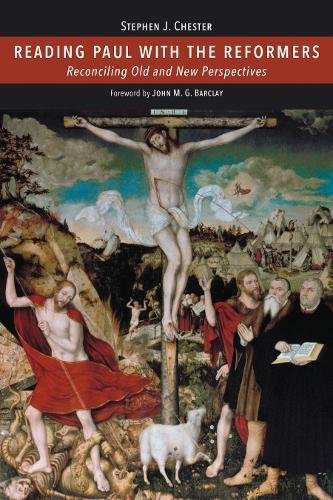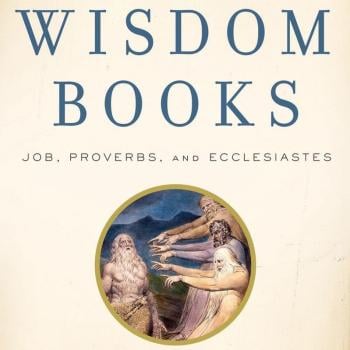Q. One of the major confusions of the Reformers, it seems to me, is making the mistake of equating initial ‘justification’ with ‘final justification’ at the return of Christ. And the reason for this mistake is that there is a nearly complete failure to recognize that in Paul there are three tenses to salvation— I have been saved, I am being saved (working out my salvation as God works in me to will and to do), and I shall be saved. Until one gets through all three tenses of salvation, the situation is not finally resolved. The NT including Paul, teaches both the dangers of apostasy by those genuinely converted (for example he speaks in the Pastorals of those who have made shipwreck of their faith, and as Wesley said, you can’t make shipwreck of something you never genuinely had), and at the same time it teaches an assurance of salvation so long as one remains ‘in Christ’. In short, assurance is one thing, eternal security based on pre-temporal election of individuals to be saved is another, and as Mr. Wesley said, the latter idea is not to be found in Paul. Luther and Calvin were both too indebted to Augustine on various matters. How would you respond and how would the Reformers respond?
A. I think your question actually merges together two different things that are theologically distinct. At the human level, we have to continue in God’s kindness (Rom 11:22) and we indeed have to work out our salvation. The gospel demands a response and I don’t think any of the Reformers would disagree with you about that. Calvin, for example, is quite clear that God demands a sanctified life from those who believe. Obedience is an obligation. There is thus no problem on their view with your insistence that salvation has three tenses.
The related but distinct question of why some who profess faith fail to continue in God’s kindness is where they would part company with you and Mr Wesley. Here they do attribute to election both faith and perseverance, so that God gives what God commands. The renewed will of the believer and the good works of the believer that result from it are a work of the Holy Spirit in us (although Melanchthon is a little more concerned to stress the assent of the human will to the word of God in contrast to Luther and Calvin’s unremitting focus on the fact that the renewed will is a work of God). Their picture is thus of the agency of the human will enfolded within divine purposes and actions. Unredeemed humanity is in captivity to sin not because we are compelled to sin against our will but because our problem is that we are unable to will what is truly good. Faith is impossible for us except as a result of divine election that liberates the will. This means that faith is in no sense meritorious. It also means that somebody whose will has truly been set free in this way will persevere. The Holy Spirit does not botch things up, hence the view that those who do not persevere were not truly set free in this way to begin with.
I think I am closer to their position than to yours and I certainly do not think that there is any basis within Paul for distinguishing between initial and final justification. Where the verb “to justify” is used in the future tense it is usually in general statements concerning whether God will justify by faith or by the works of the law. However, when this kind of question about election comes up, I do also like to point out that on either view at a practical level our will needs to be engaged in working out our salvation. The necessity and the profound challenge of God’s calling to holiness of life remains.















